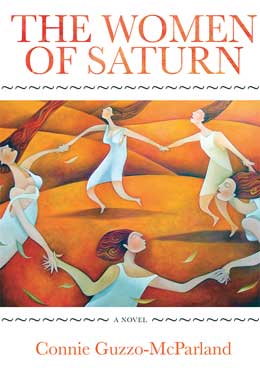-
Italian rights sold to Rubbettino Editore (Catanzaro, Italy)
After her childhood friend, Lucia is found beaten, an apparent victim of domestic violence, Cathy, a high school teacher, takes Lucia’s daughter, Angie, into her class and home. This arrangement causes conflict between Cathy, her live-in boyfriend who is involved in federal politics, and her colleagues at school. Revelations of corruption and links to the Montreal Mafia are brought to the attention of the Montreal tabloids by a journalist with whom Cathy has had a problematic relationship since her teens when she solicited his help as a writing mentor. Cathy is determined to help the troubled Angie, and through her connect the village stories of the past with the ongoing drama into a novel, thus giving the silenced women a voice through her writing. This novel is as much about the writing of the immigrant experience as it is about living it.
“The story captivated me from the opening sentence where the heroine of the novel, Cathy Anastasia, recalls how she imagined life through the filter of black-and-white post-war Italian films. The Women of Saturn continues the saga of The Girls of Piazza d’Amore with the precocious Caterina’s voyage to Canada and her coming of age in Montreal, her translation there into the woman, Cathy. Connie Guzzo-McParland has produced a literary novel that is also a page-turner; Elena Ferrante’s Neapolitan novels meet Alice Munro’s Lives of Girls and Women.”
—Mary di Michele
“An unusual blend of charm, nostalgia, and grit, Connie Guzzo-McParland’s bittersweet bildungsroman, The Women of Saturn, reprises characters from her debut novella The Girls of Piazza d’Amore. Authentic in its evocation of mid-twentieth century Italian Montreal, the novel’s preoccupations with domestic violence, cynical politics, and organized crime resonate with topical relevance for contemporary readers. Richly textured and panoramic, The Women of Saturn is an engrossing read.”
—Elaine Kalman Naves, author of The Book of Faith
“Connie Guzzo-McParland’s new novel, The Women of Saturn, is a stirring consideration of culture and politics, of loyalty and loss that is as wide as it is deep, as ambitious as it is intimate. The emphasis, here, may be on three generations of Italian Montrealers, but this is also a story of immigration, one that never ends, as Guzzo-McParland writes. It just comes back around. The Women of Saturn gives us circles within circles. Brava!”
—Joel Yanofsky, author of Bad Animals: A Father’s Accidental Education in Autism








inannaadmin –
The Women of Saturn by Connie Guzzo-McParland
reviewed by
https://www.ottawareviewofbooks.com/single-post/2017/06/08/The-Women-of-Saturn-by-Connie-Guzzo-McParland
To fully understand and appreciate Connie Guzzo-McParland’s new, almost epic novel, it is wise to go back to her first, the much briefer The Girls of Piazza d’Amore, which tells the story of the amorous goings-on of three teenage girls—Lucia, Tina, and Aurora—in the small Calabrian village of Mulirena. The narrator, ten-year-old Caterina Anastasia, spends a good deal of her time passing notes from the girls to their respective boyfriends. As such she can observe not just the exuberance of youthful infatuation as it is directed and constrained by village custom, but the social complexities of village life—the rivalries, jealousies, conspiracies, even some criminality. Mulirena is isolated and poor, and many of the younger generation of necessity are looking to the cities and even other countries for a future livelihood. Caterina herself is waiting to emigrate to Canada with her mother and brother, as many villagers have before. Her father has preceded them and is arranging the details of sponsorship. The book ends as they board the train for Naples, from where they will take a ship to Halifax, and thence travel by rail to Montreal.
The Women of Saturn picks up Caterina (now Cathy) in 1980, over twenty years later. She teaches hairdressing at a Montreal high school, but harbours dreams of being a writer. Lucia’s and Tina’s families followed Cathy’s to Montreal and, as with Cathy’s, became part of the well-established Italian-Canadian community there. The book, again narrated by Cathy, opens with a newspaper report that a woman has been beaten into a coma by her husband, who has fled. It is Lucia. Lucia’s fourteen-year-old daughter, Angie, is in Cathy’s class. She transferred from her school in Laval, where her family lives, because she was “school phobic”—a problem student. Cathy gets involved in trying to help Angie, now virtually an orphan, and this precipitates upheaval in her own life.
While The Girls of Piazza d’Amore is about village life and aspirations for a more hopeful future in a new country, The Women of Saturn is about the hard truths of immigrant life, in particular the clash of cultural norms and the shedding of romantic illusions about both people and financial success. The plot is simple, but the details are complex. Who really hit Lucia, and how is it connected with old feuds and debts of both money and honour stretching back to Mulirena are the questions that emerge to face Cathy’s pursuit of an explanation to the attack on Lucia.
Author Guzzo-McParland draws from her own very similar experience as an immigrant, supplying illuminating detail and observations that could not possibly have been invented. What emerges is a kaleidoscope picture of immigrant life. No choice is smooth; every situation contains a contradiction. Ties to Italy weaken but are not broken; ties to Canada grow, but are not complete. And it is not just the first generation that is affected. Angie is solidly Canadian, but the old-world ties—a land she has never seen, much less lived in—constrict her life as well. Her attitude becomes rejection and rebellion. As Cathy tries to address the issues in her own life—whether to marry her long-time boyfriend being the chief concern—we see facets to the immigrant quandary: where they fit in, where they don’t, the adjustment to new cultural norms and expectations, the struggle to keep what is valuable of their traditions and replace the rest with something “Canadian.”
Much is not what it seems in the Montreal Italian community, and Guzzo-McParland does a good job of challenging stereotypes to give the reader a clearer, more nuanced view of the immigrant experience. In the end Cathy makes the decisions she must, but they are merely next steps on a journey, not a resolution.
Interspersed are Cathy’s flashbacks to their boat trip across the Atlantic in 1957, their first years in Canada, a 1964 visit to Mulirena, and goings-on at Expo 67. Two chapters late in the book stray from the first-person narrative, however, and though necessary, they are a bit jarring. The first provides third-person information on intrigue back in Mulirena. The second is about Angie, giving her perspective on what is going on, including Cathy’s involvement. This chapter was a very welcome shift and more like it, telling Angie’s story more intimately, might have been a good idea.
The Women of Saturn is a vast story, with an intricate lattice of connected characters and sub-plots. It gets confusing at times, which is why reading The Girls of Piazza d’Amore first is a good idea, as it fleshes out some of the characters who are only given brief mention in The Women of Saturn. Taken together, this is an absorbing read.
inannaadmin –
The Women of Saturn by Connie Guzzo-McParland
reviewed by The Miramichi Reader – March 5, 2017
http://www.miramichireader.ca/2017/03/women-saturn-review/
This ambitious novel (420 pages) by Ms Guzzo-McParland is an epic story of an Italian family emigrating to Canada, some (like Caterina the narrator) to join their family, others (like her older friend Lucia) to meet husbands for the first time. They make the voyage by the sea in the late 1950’s onboard the Saturnalia, from which the story takes its title. Caterina, her mother Teresa along with Lucia the teenage proxy bride are “the women” of the Saturnalia.
While many of the passengers experience sea sickness for much of the voyage, Caterina and Lucia do not and have the freedom of the ship. Younger Caterina is charged with monitoring Lucia, ensuring that she doesn’t get involved with any of the overly-attentive male staff, a task which Caterina neither likes nor is entirely successful at. It is here, onboard the Saturnalia that the back story is developed and the reclusive, bookish young Caterina is awakened to the realities of life. Engrossed, she wants to remember it all and write it down with aspirations of becoming an author one day.
Presently, Lucia has been the victim of a vicious beating and lies comatose in a Montreal hospital. Speculative ties are made to the Montreal mafia, and while Caterina cannot quite believe it, she feels she must find out how her fellow ‘woman of Saturnalia’ came to be in this situation.
“There are still too many circles floating around me, all bits of one life! How to make sense of it all in a linear form? There are still some huge gaps in Lucia’s story between our ocean crossing and now.”
Her search takes her back to the rustic Calabrian village of Mulirena, where she and Lucia grew up and where Lucia was to marry Antonio until an incident occurred and she was forced to become a proxy bride for Pasquale, who was already in Montreal. Now, with his wife in a coma, Pasquale has fled back to Italy and more questions are raised in Caterina’s mind, as well as amongst the paesani in Montreal. Added to her worries are Lucia’s troubled teen daughter Angie and her boyfriend Sean’s aspirations for public office and how all this reflects poorly on his public image.
A greatly enjoyable, well-written and constructed story with many layers that kept the narrative moving along briskly and the pages turning. The story’s setting gives an insight into the Montreal of the post-Olympic era when the construction scandals were exposed and mob ties were the centre of attention, causing the Italian community to be further stereotyped.
Yet, The Women of Saturn winds up with a somewhat dissatisfying and all too sudden conclusion, leaving this reader with more questions than answers. Notwithstanding, this book is a fine novel demonstrating that Ms Guzzo-McParland can write a gripping novel, though one that begs a more definitive conclusion.